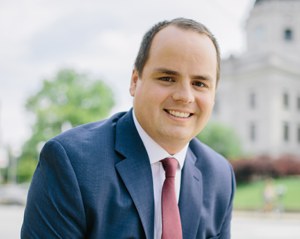Since the election results, I have received numerous e-mails, phone calls, and instant messages from concerned current and former clients. Unfortunately, many of the questions as to possible changes in immigration laws and policies cannot be answered at this time. Simply put, the laws and policies of the new administration and Congress have yet to be written. I can, however, give you my preliminary predictions as to which major immigration programs and categories will likely see change and which will not. I give these early predictions because timing is often very important in immigration law and waiting to file could jeopardize your status. Immigration policy is not changed overnight with a new administration, but being proactive now could pay dividends in the future. If you could be eligible under these categories or any other, I recommend you call our office today and discuss with an experienced Bunger & Robertson attorney the path ahead. Again, before you read my best guesses, I want to remind you that they are just that, guesses and subject to error and change in circumstances.
Likely to see major change or elimination:
General Enforcement, Removal, I-601A, and I-601 waivers
Eight of the points in President-elect Trump’s ten-point immigration policy plan1 are devoted to increasing enforcement and removal of undocumented immigrants. These include ending sanctuary cities, expedited removal, and construction of a physical wall. He has also promised to triple the number of ICE agents.2 It remains unclear how committed the new administration will be to mass deportations or if such a policy is even logistically possible.3 That said, I anticipate increased enforcement measures and an increase in removal proceedings. I also envision a change in the guidelines relating to I-601 hardship waivers since they sometimes concern past criminal convictions. President-elect Trump has made it clear that targeting immigrants with a criminal record is a top priority. It is unclear whether waivers based on other grounds of inadmissibility would be affected. The I-601A, an Obama administration initiative, could also possibly be on the chopping block.
Deferred Action for Childhood Arrivals (DACA)4 and Deferred Action for Parents of Americans and Lawful Permanent Residents (DAPA) a.k.a. the Dream Act
Trump’s campaign website explicitly promises to “Immediately terminate”5 both DAPA and DACA. Since DACA is a policy based on prosecutorial discretion, it can be ended with a single presidential signature. I expect it will be terminated shortly after the new administration takes office. I also expect numerous court challenges, and given the Supreme Courts current make-up and the DAPA decision in United States v. Texas6 last summer, these challenges are unlikely to be successful. Obviously, I do not expect the Trump administration will reinitiate DAPA after it was blocked by the Supreme Court last year.
Asylum and Refugee Visas
Under current law, the President has wide discretion to select the overall number of refugees and asylum seekers admitted each year. I would expect the total number to significantly decline and the number of Muslim refugees in particular to decline.
“Extreme vetting” from certain countries
The most recent Trump proposal called for a three-pronged test7 to deal with possible Islamic extremists entering the United States. First, there would be a temporary ban on immigration from the most volatile regions in the world that have a history of exporting terrorism. Second, the Department of Homeland Security would then provide a list of these countries and regions. Third, a stringent immigration test would then be applied to applicants from these countries to ensure the intending immigrants’ values were congruent with American values. Such a stringent vetting is unprecedented in modern immigration policy so it is difficult to predict a quantitative result. I predict a lower number of approved visas and immigrant petitions from predominately Muslim countries.
Too early to tell:
H-1B
This much-debated category was frequently discussed during the primaries and general campaign. President-elect Trump’s policy position throughout the campaign has also frequently changed.8 It is difficult to predict the future of the category at this point.
J-1 (cultural exchange) visas
According to a statement provided by his campaign in March, 2016, President-elect Trump vowed to terminate the J-1 visa program.9 This came amongst reports that his businesses have used J-1 visa holders as employees without first attempting to recruit local hires. Since his immigration policy narrowed in the general election, the J-1 policy statement has been deleted from the campaign website. At this time it is difficult to discuss the future of the J-1 visa.
F-1 (OPT)
Although Jeff Sessions, a close Trump ally, had previously advocated a complete abolition of the F-1 student Optional Practical Training (OPT), it appears that this never became part of the Trump campaign platform. In fact, in late 2015 the candidate tweeted “When foreigners attend our great colleges & want to stay in the U.S., they should not be thrown out of our country.”10 This could also be interpreted as a subtle endorsement of the Obama administration’s recent international entrepreneur visa program.11
Birthright Citizenship
Most legal scholars believe it would require a constitutional amendment. However, no less than the noted jurist, Judge Ricard Posner, has speculated the change could be done by statute alone.12 I am not normally one to bet against Judge Posner, but if Congress and the Trump administration passed a statute the ensuing legal battle would be interesting.
Family-Based Immigration (including marriage-based adjustment of status13, K-1 Fiancé(e) visas14, petitions or parents or other qualifying relatives)
Although these categories make up the vast majority of newly-admitted permanent residents each year15, they were largely undiscussed during the heated election cycle. The volume of immigrants in these categories alone makes any change difficult. It is important to note, however, that some commentators have speculated a general overhaul to immigration law could terminate some family-based categories or limit the total number of applications. If this did occur, I suspect brothers and sisters of US citizens(F4) and unmarried sons and daughters of permanent residents (F2B) would be the first to be eliminated.
Likely unchanged:
EB-5
Other than reports16 that the Trump Organization received investment through the EB-5 program, the future of the EB-5 program was largely ignored by both campaigns. The sometimes controversial but generally-bipartisan program is unlikely to see major changes, aside from a possible raise in the total amount of the required investment.
O-1, National Interest Waivers, L-1, P-1, EB-1A
These and other programs that target exceptionally skilled or specialized workers are unlikely to see major change.
How can we help?

At Bunger & Robertson, we consider you not only our client, but also our family. Even through tumultuous changes in policy, we are committed to serving our immigrant clients. I have included to the left a picture of my father (far left), his brothers, and older sister before they left from Italy to show you just how personal our commitment to intending immigrants is. Please do not hesitate to contact an attorney at Bunger & Robertson to assist you or your employee or your loved one with their immigration needs.
[1] https://www.donaldjtrump.com/policies/immigration/
[2] http://www.nbcnews.com/politics/2016-election/trump-recommits-mass-deportation-fiery-immigration-speech-n641016
[3] http://thehill.com/blogs/ballot-box/presidential-races/284910-trump-shifts-tone-no-mass-deportations
[4] https://www.uscis.gov/humanitarian/consideration-deferred-action-childhood-arrivals-daca
[5] https://www.donaldjtrump.com/policies/immigration/
[6] http://www.scotusblog.com/case-files/cases/united-states-v-texas/
[7] http://www.cnn.com/2016/08/16/politics/how-us-vets-immigrants-donald-trump-extreme-vetting/
[8] https://www.washingtonpost.com/news/fact-checker/wp/2016/03/21/donald-trump-flip-flops-then-flips-and-flops-more-on-h-1b-visas/
[9] http://www.chicagotribune.com/news/nationworld/politics/ct-donald-trump-student-visa-20160314-story.html
[10] https://twitter.com/realDonaldTrump
[11] https://www.uscis.gov/news/news-releases/uscis-proposes-rule-to-welcome-international-entrepreneurs
[12] https://www.cato.org/blog/president-trumps-immigration-plans
[13] https://www.uscis.gov/green-card/green-card-processes-and-procedures/adjustment-status
[14] https://www.uscis.gov/family/family-us-citizens/fiancee-visa/fiancee-visas
[15] https://fas.org/sgp/crs/homesec/R43145.pdf
[16] http://www.nytimes.com/2016/10/21/business/international/trump-china-visas-hotel.html?_r=0
About the Author:

Joseph might be the newest member to the Bunger & Robertson practice, but he has been deeply invested in the Bloomington community for some time. A native Hoosier, Joseph holds an undergraduate degree from St. John’s University (MN), and a law degree from the Maurer School of Law.
Since then, Joseph’s practice has remained deeply rooted in the surrounding southern Indiana area, most notably with the Chinese community in Bloomington. His fluency in Mandarin Chinese fostered a strong bond and loyal practice, assisting with labor and employment issues, criminal defense, business litigation and family law, including divorce, in addition to more complex immigration law support.
More information available at:
http://www.lawbr.com/people/joseph-r-fuschetto/
http://www.lawbr.com/practice-area/immigration-naturalization/